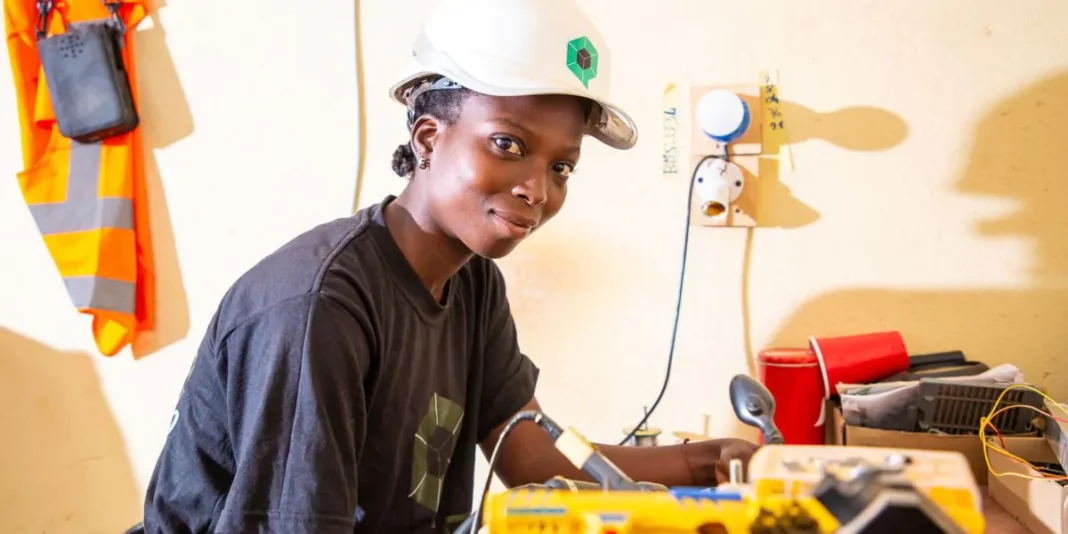AECF and the Africa Development Bank Group’s Affirmative Finance Action for Women in Africa (AFAWA) initiative have partnered to scale and realize the entrepreneurial capacity, feasibility, and sustainability of women-led/owned small and medium-sized enterprises (SMEs) in Africa.
Targeting women-led/owned SMEs in the agribusiness, renewable energy, financial services, education, water and sanitation, tech, and health care sectors, the initiative – named Nkwanzi – Scaling Women SMEs Project – aims to support 400 Women SMEs (WSMEs) through self-directed learning on the AECF Academy platform, one-on-one mentorship and coaching, business assessment for investment readiness, and facilitation of investments from financial institutions. The project will be implemented across nine countries, namely: Burkina Faso, Ethiopia, Kenya, Liberia, Mali, Mozambique, Tanzania, Zambia, and Zimbabwe.
AEFC Household Solar Competition Launch Release
According to a World Bank Report, 58% of all African small and medium enterprises (SMEs) are women-owned. However, these businesses continue to struggle in ways their male-owned counterparts do not. It is estimated that the financing gap could be as much as US$ 42 billion for women-owned businesses, attributable to various factors, prominent amongst which are social and cultural norms that have long hindered women’s right to ownership of assets – a vital entitlement that is often required as collateral when accessing credit from formal financial institutions.
To address this imbalance, the Nkwanzi- Scaling Women SMEs Project aims to make funding available to support businesses that directly impact or work with women. The project will address barriers to women’s access to finance, investors, and peer networking, as well as assist women to identify and engage with, potential and relevant investors. Moreover, the project will significantly aid businesses with opportunities to secure funding by linking them to financial institutions at the country level.
Speaking at the launch, AECF CEO, Victoria Sabula said:
“Women’s integration in economic development in Africa has stalled as various cultural and social norms militate against their economic inclusion. However, despite these challenges, their involvement in providing livelihoods for their communities has never wavered. The AfDB estimates that women-led businesses direct almost 90% of their income to education, health, and nutrition for their families and communities. It is incontrovertible, then, that investment in women transforms communities – from the familial and communal level to the broader societal level. The Nkwanzi- Scaling WSMEs Project aims to train women to navigate the financing ecosystem and access finance to unlock the credit required for them to expand their businesses and, ultimately, realise the fullness of their entrepreneurial potential. We are delighted to be partnering with AFAWA on this, given their impressive work in, and profound knowledge of, this field.”
Attending the launch, Susan Okoh, the Principal Officer for the Affirmative Finance Action for Women in Africa (AFAWA) in East Africa said:
6 Gestures That Show a Man Is in Love With You and 6 Signs That Show He’s Using You
“The AfDB and AFAWA are very excited to partner with the AECF and to participate in this momentous Nkwanzi launch—together with supporting partners like the AGF. This partnership aims to increase financial inclusion for women-led businesses across the nine countries of focus.
We commend the management and staff of the AECF including our donors for setting up the Nkwanzi platform that will provide dedicated training and capacity building to the participating women SMEs. This platform should provide the spring in growing a sustainable and scalable program to reach as many women SMEs as possible in different countries.”
The Nkwanzi– Scaling Women SMEs Project is currently running applications for potential women-led enterprises to go through the training and financial literacy program to empower them to expand and achieve their entrepreneurial capacity. The selection criteria will look at the viability, sustainability, and market attractiveness of women SMEs. The call for submission of entries is open until December 2nd, 2022.

